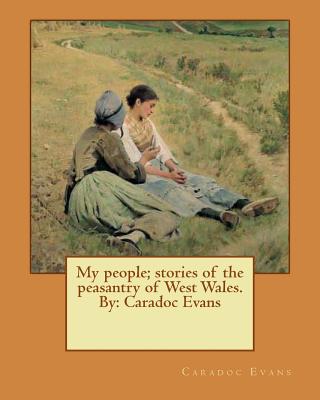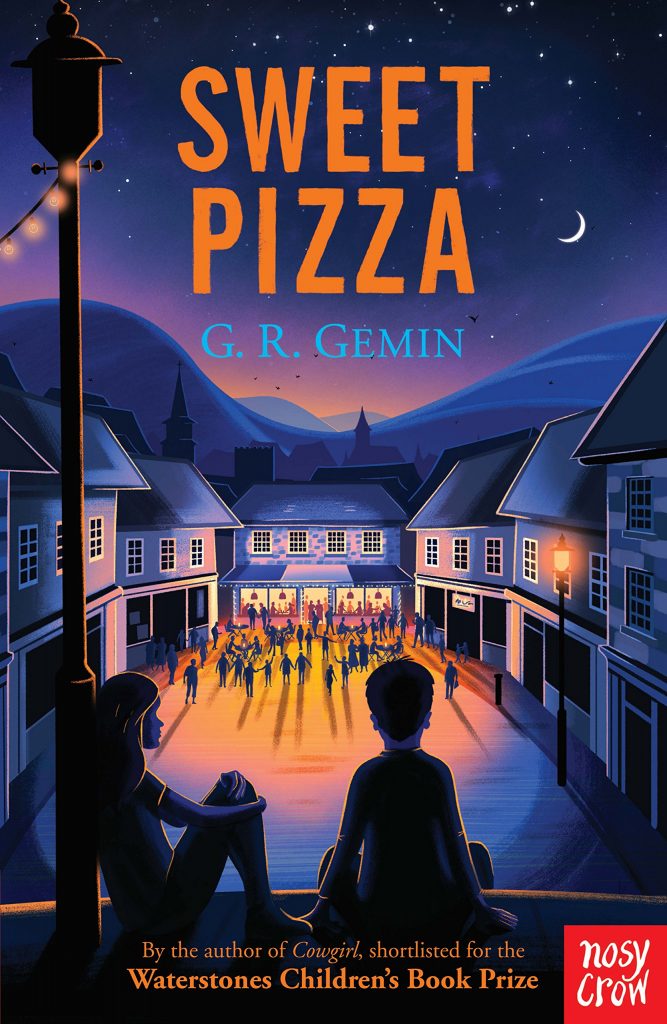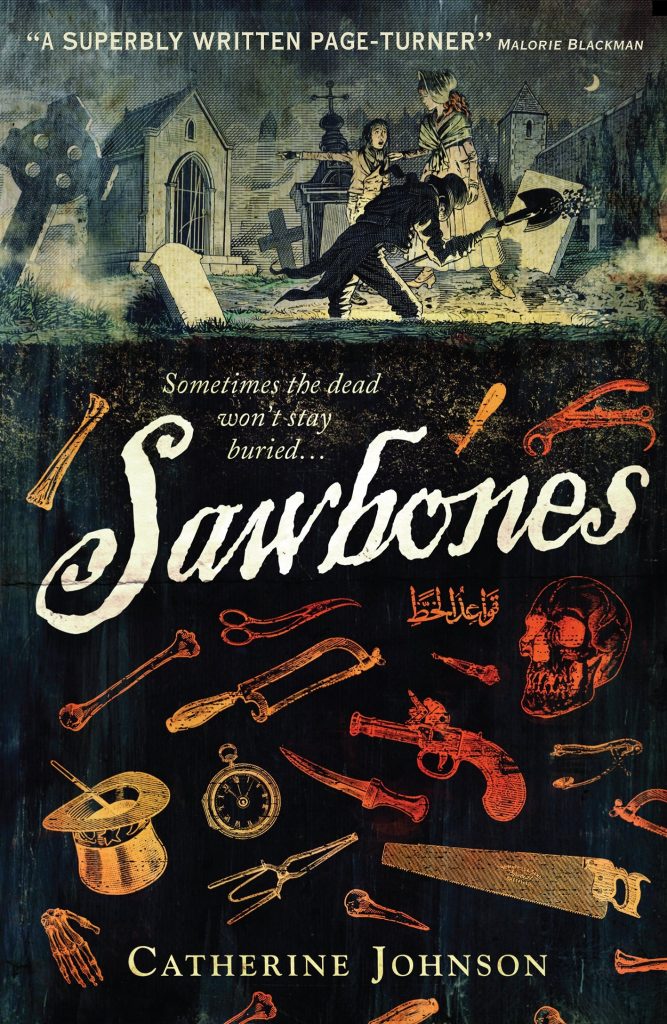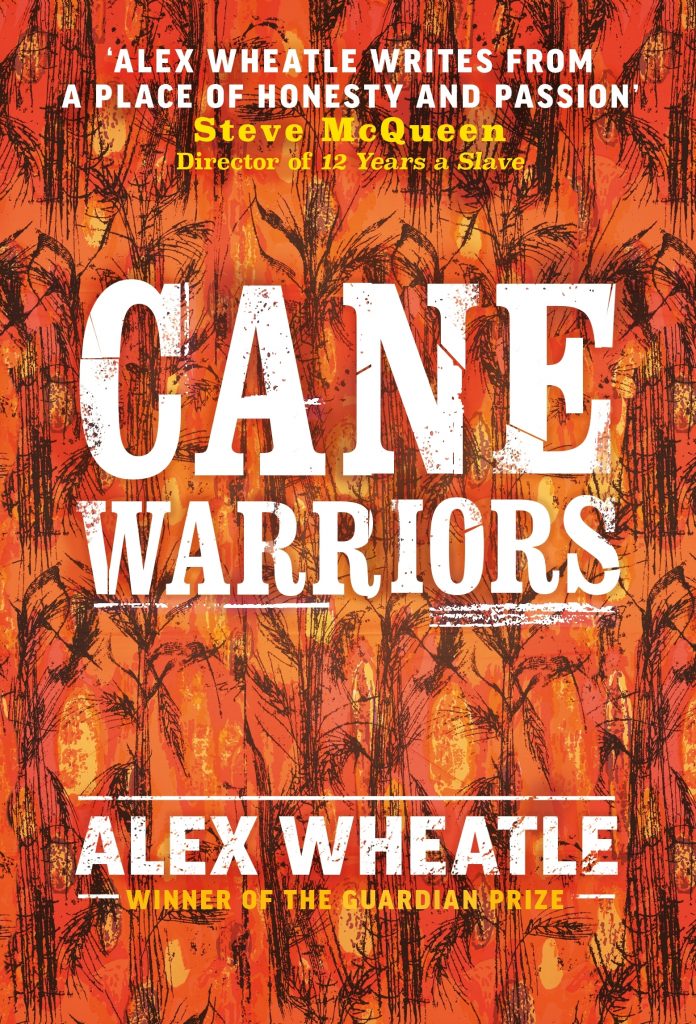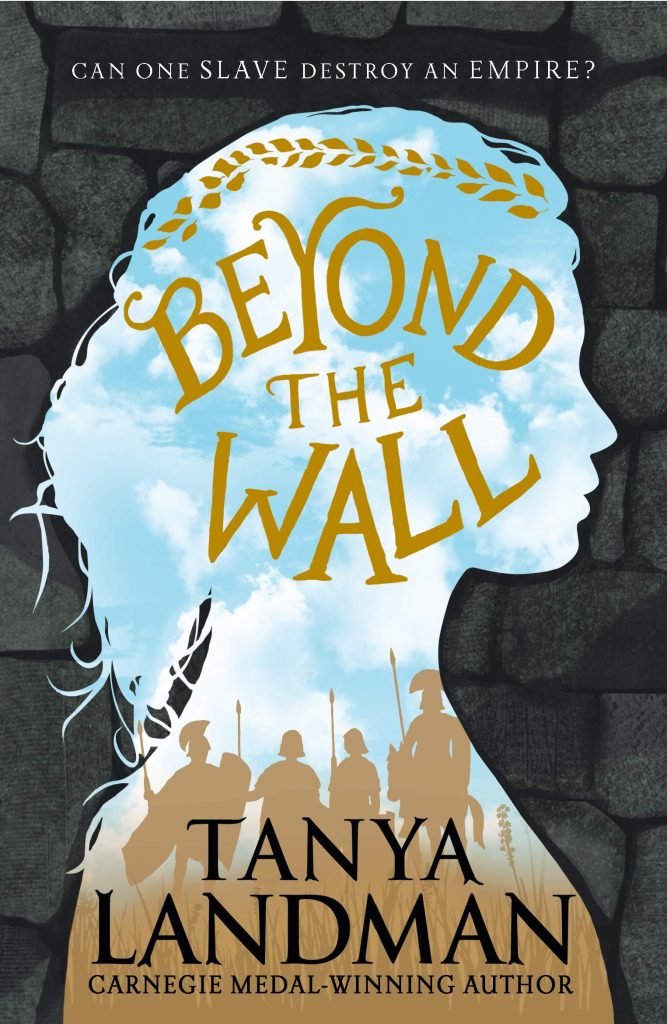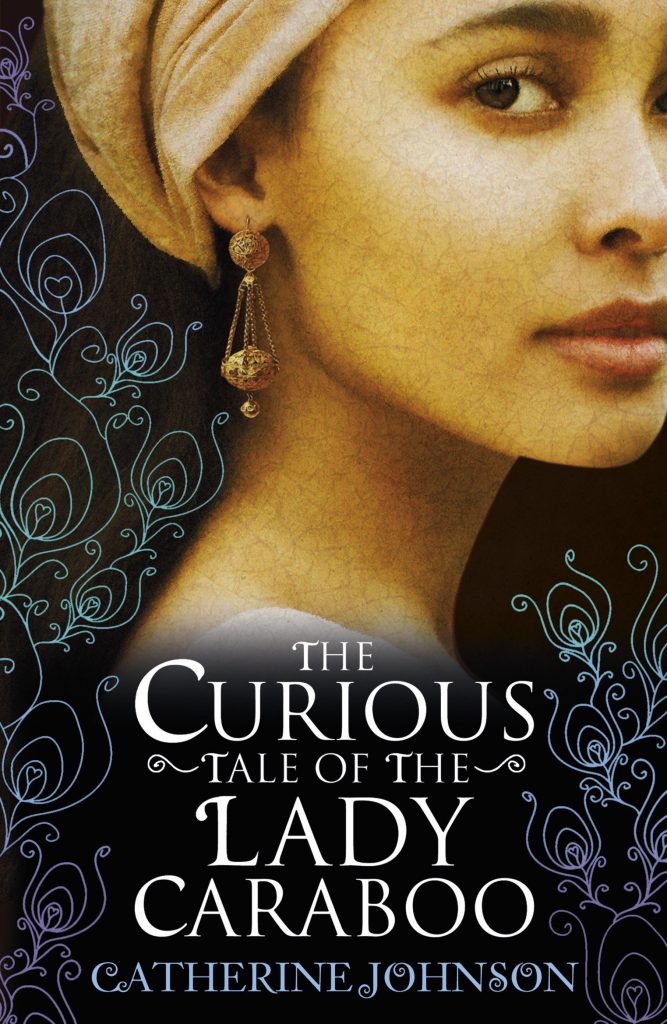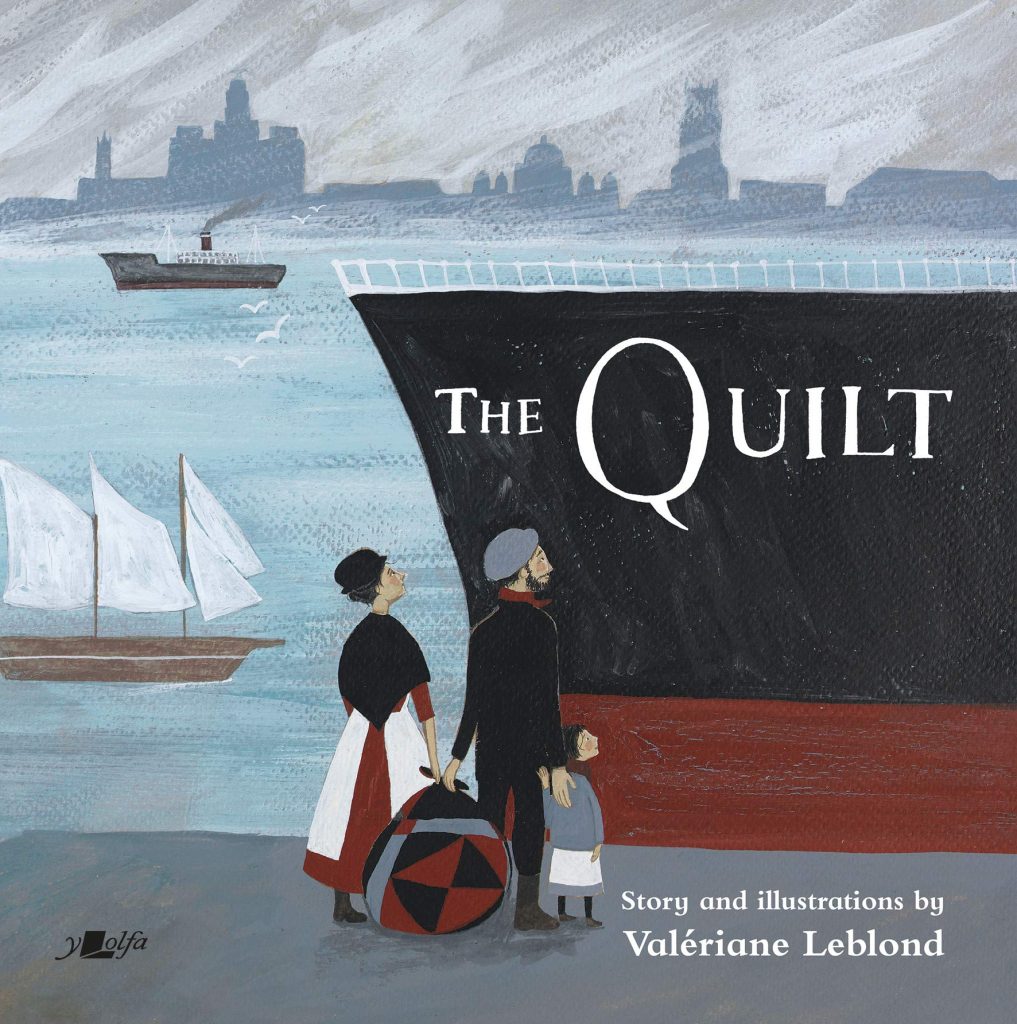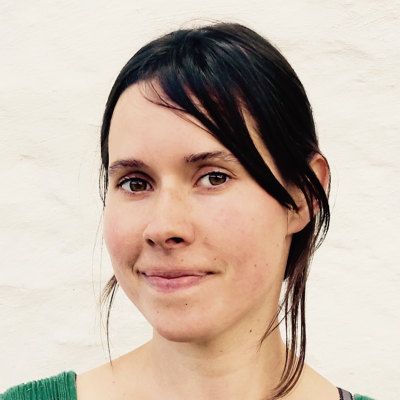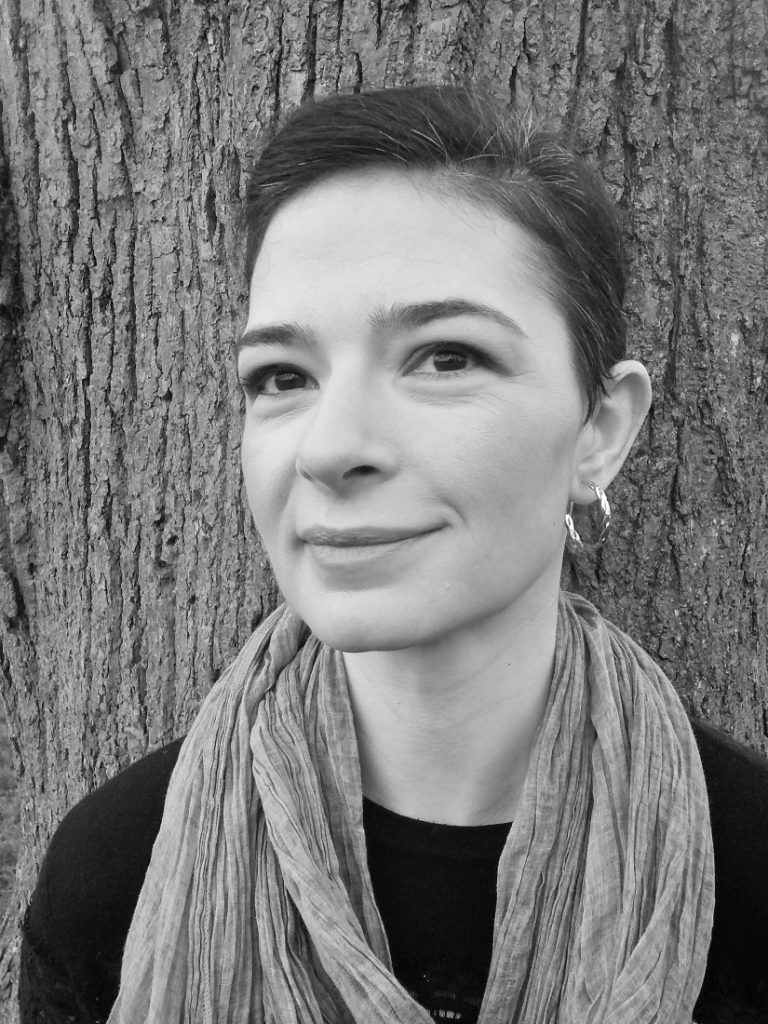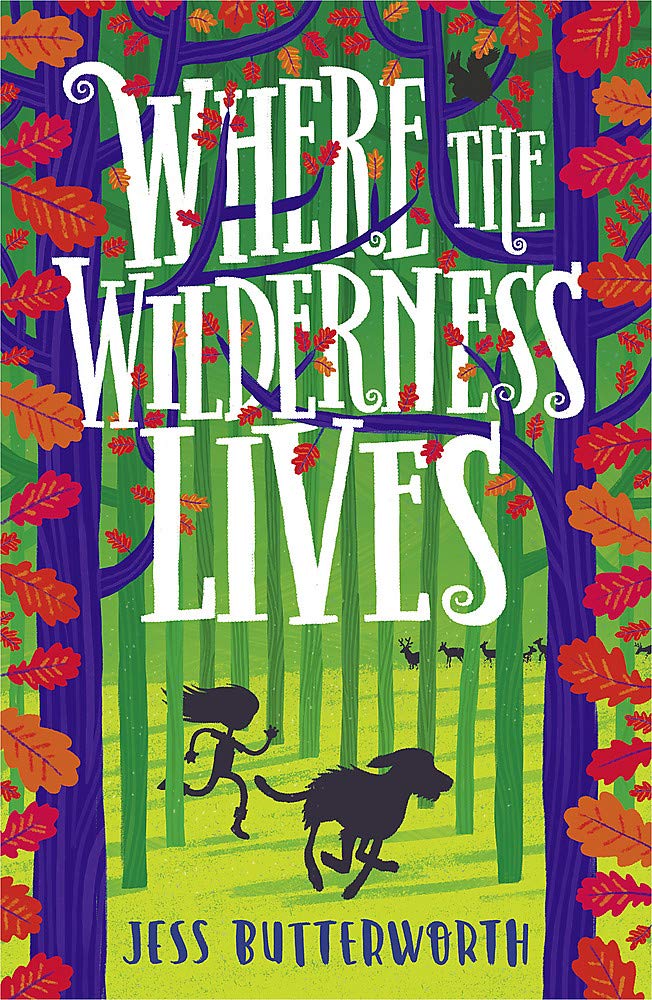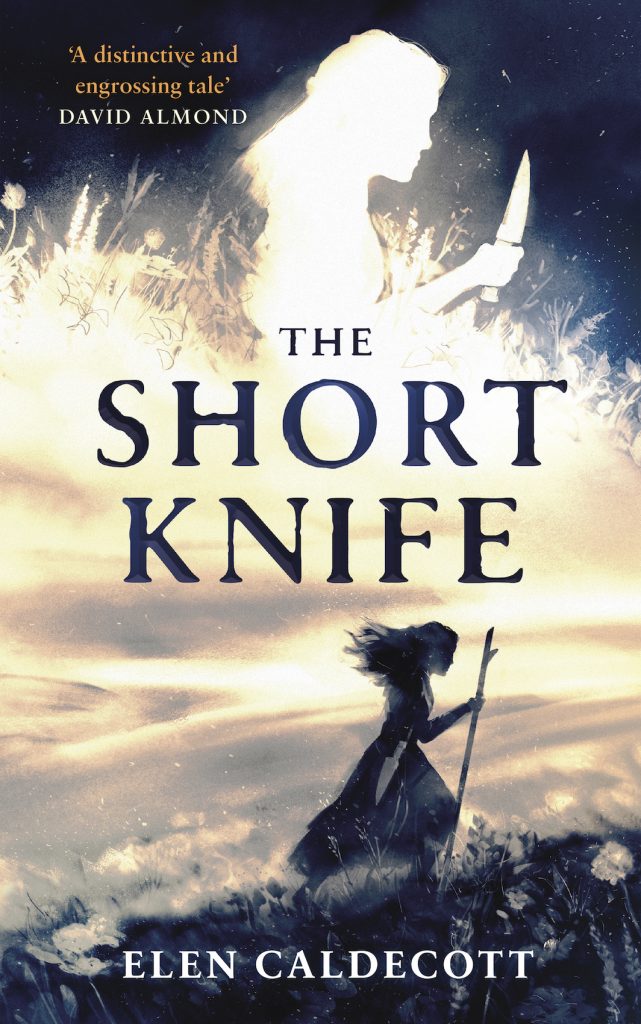The Tir na n-Og Award is an annual award for children’s books with an authentic Welsh context. The shortlist, announced in March, features three brilliant books:
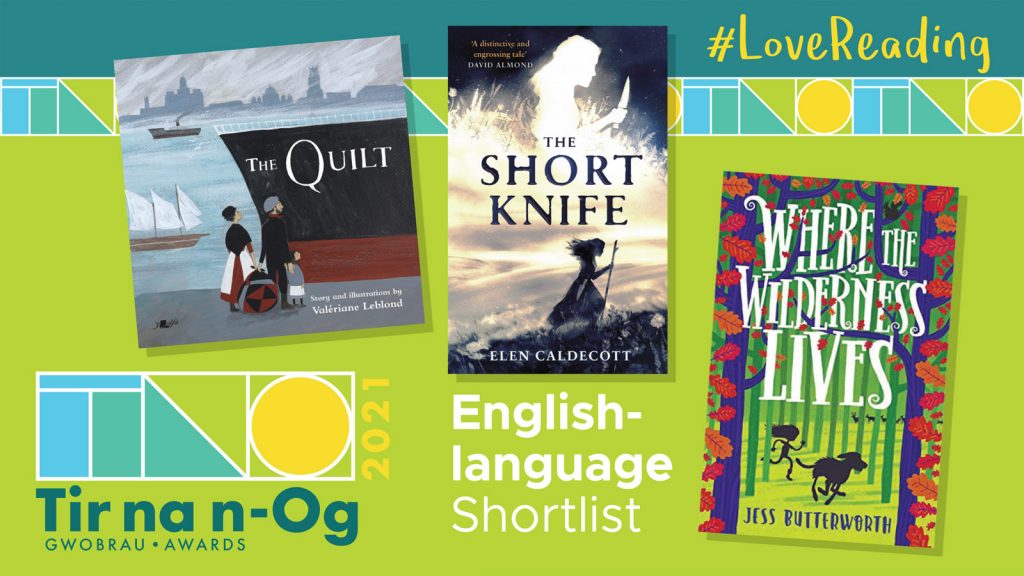
The winner of the award will be announced at the end of May. In the meantime, we are all encouraged to shadow the awards and get to know these books in more detail. We are delighted to be bringing you interviews with the shortlisted authors, and our first is with Dr. Elen Caldecott, author of The Short Knife.
Elen was born and raised near Llangollen, where her family still lives. She has published many books for children; her debut novel, How Kirsty Jenkins Stole the Elephant, was shortlisted for the Waterstone’s Children’s Prize and longlisted for the 2010 Carnegie Award. The Short Knife was written as part of her PhD in Creative Writing and was longlisted for the Carnegie. It is a story set in the early middle ages, 454, at a time when Welsh identity was just starting to emerge, when the Romans had left and the Britons and Saxons were battling to take hold of different territories. Young Mai and her sister, Haf, are suspicious of the Saxon soldiers arriving in their village. Proved rightly so by a brutal attack on their family home, the sisters must seek a new place to belong, encountering betrayal, love, and everything in between. This is a celebration of difference and finding your own way, when even speaking your mother tongue can be dangerous.
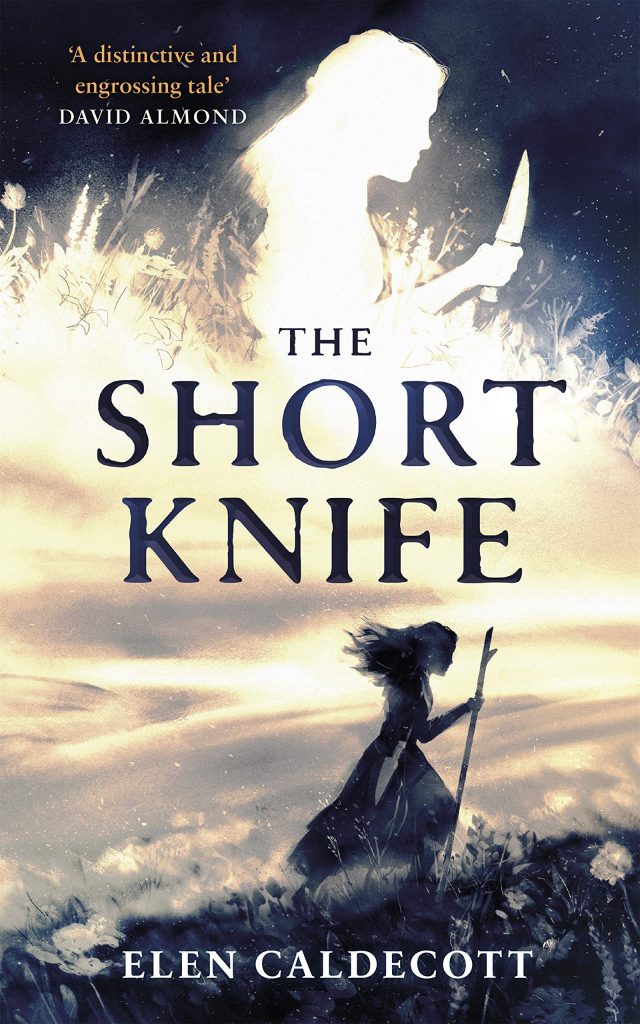
What was the seed that began The Short Knife?
I was curious about language, primarily. In an earlier book (Diamonds and Daggers), I had written a Polish character and the copyeditor had asked ‘Isn’t their English really good?’ and the answer was, ‘No, they’re speaking Polish to the other Polish characters.’ But, of course, the words on the page were English. So, I had a creative problem: How can you give the impression of one language when writing in another? It felt like a puzzle. I wanted to try to solve it. As I speak only two languages well enough to be able to write in them – Welsh and English – it was a puzzle I could only try to solve using those languages. Therefore, the voice and style of The Short Knife came first and the plot afterwards. It was great to turn that puzzle into a research question for my PhD as it gave me the time and space I needed to play.
You were an archaeologist – does this have any bearing on the way you approached the story?
Definitely. I studied Roman Britain as an undergraduate, and I’ve always been fascinated by the end of the empire. It would have been a very different experience, depending on where you lived (If you were in modern Turkey, for example, you might not even have noticed). Britain was probably the worst affected province. So, I knew it was a time of tumult, which is always good for a story. In a more practical sense, I was able to read site reports for excavations which had happened in the locations I was using, so I can justify some of the decisions I made – for example, having Gwrtheyrn resettle an Iron Age fort.
Were there any specific sites that provided inspiration or breakthrough moments?
Yes, absolutely. Even though it’s historical fiction, and there’s no 100% accurate way to know what life was like then, I found some approximations which were really inspirational. Leigh Woods in Bristol is woodland with a hill fort within it. I took my laptop and my dog up there a lot. We’d walk for an hour and I’d do my best to notice details of the landscape, then I’d write.
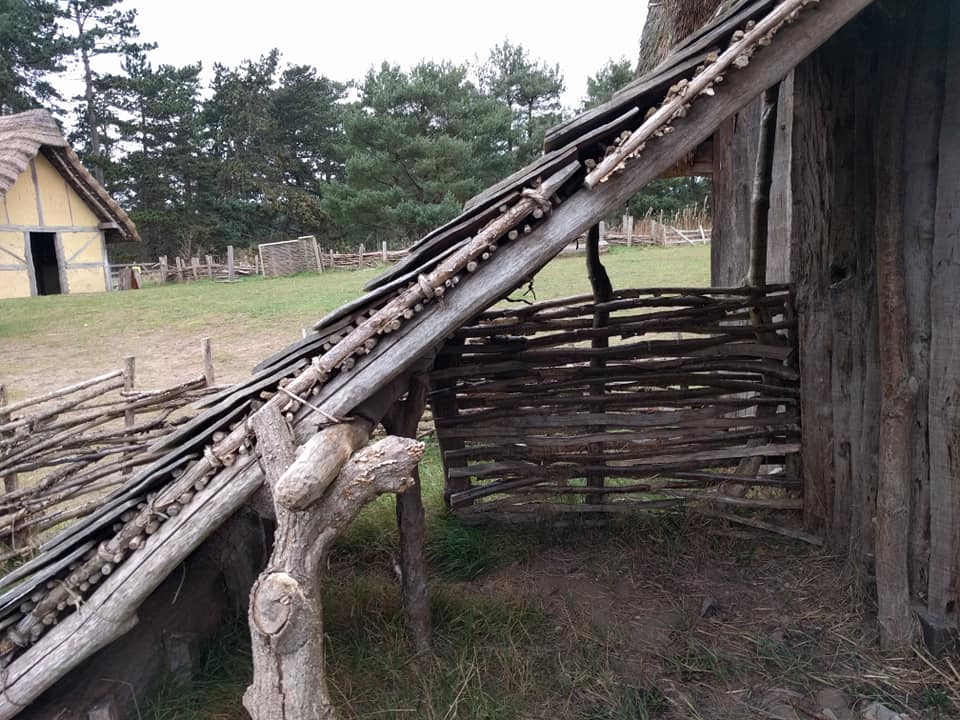
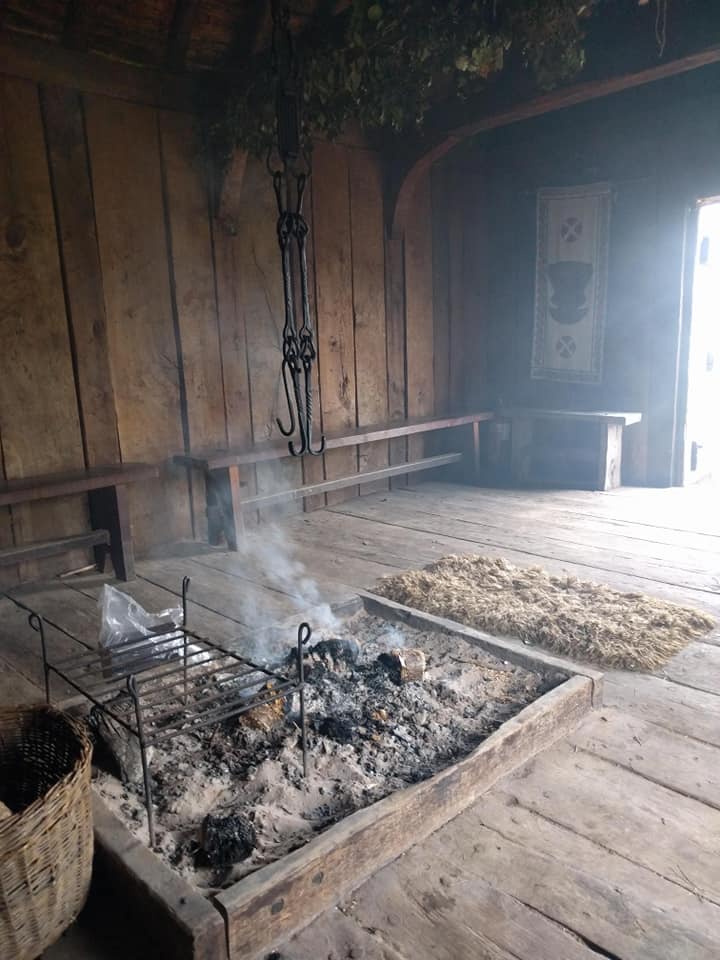
Images by Elen Caldecott 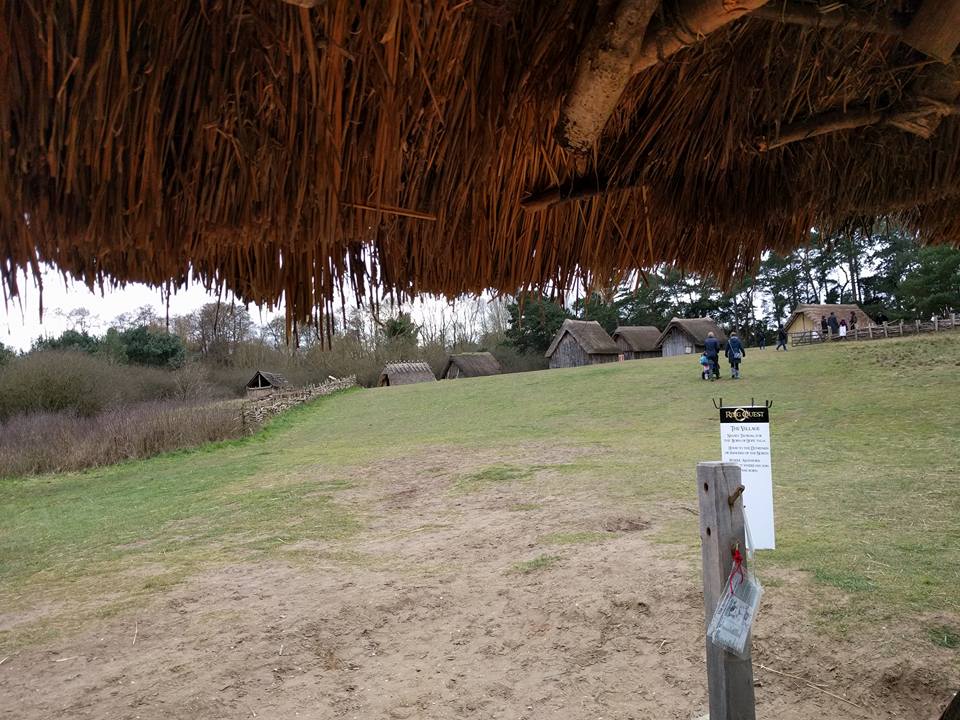
I also visited ‘reconstruction’ sites – St Fagans in Cardiff has a small village of roundhouses, and West Stow, near Peterborough has some Anglo-Saxon halls. It was genuinely amazing to visit these sites and talk to the people who worked there. My pen rushed over my notebook. I felt as though the sounds, smells and sensations were a way to get closer to my characters. I also visited Newport Wetlands and Cadbury Congresbury hill fort for more details about the landscape.
Where is the farm of Mai, Haf and Tad located and would they have considered themselves Welsh, British or something else?
Most readers have assumed that their farm is in modern Wales, but it isn’t. It’s actually nearer to modern Bristol, (though that city hasn’t been established at this time period). There are clues to the location – for example they talk about walking to the Severn and the crossing being dangerous. But I call the river by its Welsh name, the Hafren, and I don’t think most people are familiar with that name. Its funny, really, you’d think that two neighbouring countries would know what the other called the boundary between them, but we don’t. It reflects the enormous power imbalance between the languages, I suspect.
In terms of what Mai and her family would consider themselves, they are British. However, there’s a generational divide between what they mean by that. Tad, who was a boy at the end of empire, might think of himself as a citizen of the Roman Province of Britannia, at least nostalgically. Mai and Haf, on the other hand, have no such nostalgia. They speak Brittonic, a language family that spread from Edinburgh to Exeter at the time. Having said that, daily life was likely so disrupted, I doubt there was any sense of a ‘national people’, the societies were likely much more regional.
Do you see yourself as Welsh, British or something else?
Yes, I absolutely do think of myself as Welsh – that’s what I’d reply if someone asked me where I’m from. I haven’t lived there since I left to go to university, but my family is still there. I visit regularly (or did, you know, before). My PhD was part supervised at Aberystwyth University and I ended up working at Cardiff Uni for nearly two years afterwards. I rarely think of ‘British’ other than as a legal term – like on your passport or when applying for a job. It’s something I am, but it doesn’t hold quite the same resonance, in the way that watching a Lions tour isn’t quite the same as watching the Six Nations…
Whilst the landscape is beyond Wales, the book has Welsh influences and a strong Welsh current. This comes from the language you use.
Yes, absolutely. The language Mai speaks, and thinks in, is inspired by Welsh. I tried to give her a Welsh mindset (as much as one can, given that the book is set in an ancient past). So, the language is important, but there are other ideas about being bilingual, fitting in or standing out, being part of a community that can feel on the edge of things, on the edge of attention. There are also themes of betrayal in the book – about whether or not one should stick with a community one is born into, or whether there are things to be gained by leaving, which are also inspired by my own connection with Wales.
The language is exquisite. I understand you created a database of idioms directly translated from Welsh. How did you hit upon this idea and did you have any favourite phrases?
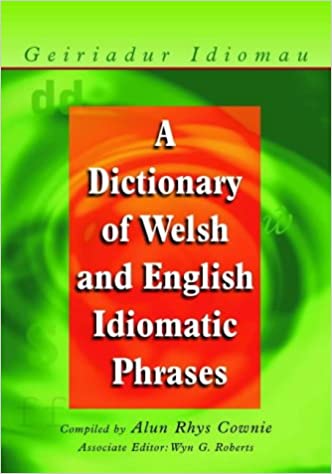
I’m not sure where the idea came from now. I think I was looking at ways other writers have approached working between languages and I was listening to talks by people like Xiaolu Guo and Nicholas Jose who work between languages. The idea might have come from there. Once I’d had the idea I bought a copy of ‘A Dictionary of Welsh & English Idiomatic Phrases’ by Alun Cowrie and translated it. There are thousands! Some really wonderful ones are ‘to grow small bones’ and ‘to see your apron strings grow short’ for being pregnant. I also really enjoy some of the euphemisms for death, like ‘to go and get your answer’ or to ‘to go and sleep outside’.
How did you find Mai’s voice (and Welsh mindset)?
The technical limitations I set myself dictated her voice a lot – the idioms, for example, tend to be quite ‘earthy’ so she had to be someone close to the land. It was tricky to imagine what a teenager might have sounded like back then. I made her dad a storyteller, so that she could legitimately have more wider frames of reference (like history, religion etc) than an illiterate farmgirl might otherwise have had. After that, there are elements of the plot which I think push her closer to a ‘Welsh mindset’, so things like being bilingual, living close to more powerful communities, and worrying about betraying the community she came from by adapting to her new circumstance.
The problem of the power imbalance between English and Welsh is an interesting one, does the answer lie in education? Did a welsh-medium education give you a perspective on this?
There is definitely a power imbalance between the languages. One is a World Language, the lingua franca of half the world. The other is one of the oldest spoken languages, still clinging on at the edge of Europe.
There are a few things I’d like to see happen. The first is that people stop trying to see them as equivalents. So often people say, ‘What’s the point of learning Welsh? Why not learn a useful language like Spanish?’ But, *if you already speak one World Language* then all bets are off. English will serve you well anywhere you go; you’ve got your useful language. So, your second (or third, etc) language should be anything that gives you pleasure, be that Welsh or Klingon (or Spanish, sure!). And, connecting with a language that stretches back thousands of years has got to be pretty pleasurable. It’s like visiting a National Park, or a gallery or theatre, it can just be a thing you do because you think it’s cool.
The second thing I’d like to see is for everyone to worry less about ‘fluency’ (including myself!). The ability to speak a language is a spectrum; no-one knows all the words of a language. So, if all you know is ‘diolch’ and ‘bore da’, then use those and feel fine about saying ‘I’m a beginner’. Or, if you get tangled up with mutations, power through, knowing you’ll be understood just fine. Perfection is the enemy of done, after all.
I don’t think I thought very much about these things when I was at school. A Welsh medium education was just, you know, my life. It was only when I was older that I realised that my parents had made something of a political choice with the school they chose.
How important is authenticity and how far should a writer go to achieve this?
It’s important that your reader believes in the world you’ve created. It’s actually half the battle – if a reader 100% believes the setting, then they will suspend their disbelief for the rest of the story/characters. The easiest way to write a believable setting is to do good research and simply describe whatever it is you’ve found out. If there are obvious anachronisms, then the reader might notice it’s *all* made up. Having said that, it can be really interesting to deliberately use anachronisms in historical fiction – I’m thinking of something like Alex Wheatle’s ‘Cane Warriors’ which uses current London vernacular in an 18th century West Indies setting; it does this – I think – to highlight that we just don’t know what the ‘authentic’ voices would have sounded like; they have been erased. So the ‘inauthenticity’ points to the violence that was done. At the end of the day, the duty of the writer is to the needs of the book they are writing, not to historical accuracy.
The split narrative creates real mystery and intrigue. Were there any difficulties in composing a non-chronological narrative and what spurred you to write it in this way?
It was actually just a really practical solution to a writing problem. The finale of the story is based on a traditional legend called ‘The Treachery of the Long Knives’. The legend is a very male story. If I’d ended the book with that legend, it would have taken the spotlight off Mai, which I didn’t want at all. BUT, it’s such a dramatic story, it would have been weird to put it in the middle of the book. My solution was to write a really long epilogue and spread it out through the book. The reader moves between before-the-treachery and after-the-treachery with the actual moment of treachery where you would expect it to be, at the end. I don’t know if I’ve explained it well, but it wasn’t that I set out to compose a non-chronological narrative per se. The narrative was actually a solution to a different problem I had.
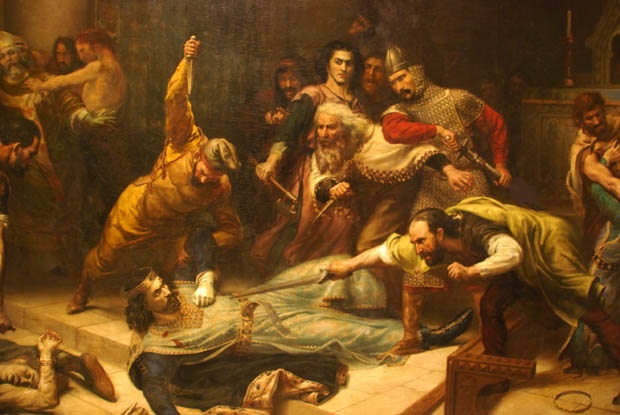
Is the legend of Gwrtheyrn something you were aware of from school?
To be honest, I couldn’t tell you when I first heard about it. We definitely read all kinds of Welsh legends while I was in school. I learned to read using a reading scheme called ‘stori a chwedl’ which was jam-packed with quite gory stuff (the horse’s eyelids story from Branwen was particularly disturbing when I was in primary school). I was reminded of it in conversation with Cathy Butler, a children’s writer who is also a lecturer in Cardiff. She reminded me of the story when we were talking about the lack of female characters in early medieval literature – though Gwrtheyrn is called Vortigern in the version she knew. My version of him evolved to fit the story. He’s the person I needed him to be, rather than me trying to capture a ‘real’ version.
So many brilliant books from Wales use a folk tale as a seed or even framework for their stories. The Snow Spider, The Owl Service, Cantre’r Gwaelod. Many people see folk tales as holding a mirror up to society so that our values and principles can be taught/preserved. Does The Short Knife hold a mirror up to Wales (and England) / Britain?
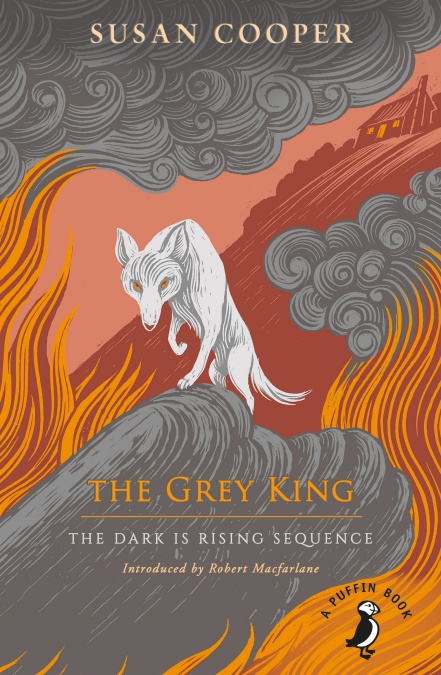
Oh and don’t forget The Grey King, I love that book! I really hope The Short Knife holds up a mirror, for sure. I want us to remember how much the kingdom has evolved over the centuries, and how much of what we consider as ‘English’ or ‘British’ are actually imported ideas. We are an island nation formed by the movement of people.
The book has many parallels to today – were these deliberately planned from the outset?
I’d say yes, and no. They weren’t planned right from the outset, but early on during the writing, the Brexit vote happened, and all the aftermath of that like the rise in reports of racists attacks. I couldn’t help but think about the island’s relationship with the continent – how we often think of ourselves as separate, but actually have a rich and complex shared history. I also wanted to hold a mirror up to all the people I heard saying rubbish like, ‘England for the English’ and remind people that the English were once ‘invaders’ too (and I use that word very advisedly!).
It seems that you approached The Short Knife very differently to previous books. Has The Short Knife changed you as a writer?
I think so, yes. I’m working on a book just now, and I’m much more willing to write about Wales than I was. I’m also much more aware of language and playfulness of style, whereas I think in the past I thought plot was the most important thing. I’m more interested in seeing where exploration takes me, without worrying right from the beginning whether something is a good idea or not.
The book seems suited to a YA audience – was this audience in mind when you were writing and what do you hope young readers get out of it?
Yes, the themes of identity and community – as well as betrayal, which is quite a big part of it – were just a bit too mature for Middle Grade readers. Also, there’s a fair chance that the language would alienate young readers. So, it was always intended as YA. Having said that, a lot of adults have enjoyed it too. I’m certain that what we bring to a piece of art (be it books, films, music etc) has a huge impact on what we get out of it. So, I think that, for example, a young person who speaks one language at home and a different one outside will get something from the book which is quite different to what a monolingual speaker would get. But I hope that there are ideas about not reaching for easy answers to complex problems in there. I also hope that the wide range of female characters model female power in lots of different ways – there isn’t just one way to use your voice. I hope young readers see those ideas there, at least!
And what do you think your readers will learn from Mai?
For me, I think she comes to understand that the world is more complex than she thought at the beginning. Initially, everything is so black and white. But, over time, she sees that everyone can make stupid or thoughtless decisions; that even ‘villains’ can be loved by their families. That’s what I see in Mai’s development, and that’s what I’d like young people to take away from the book, really. Mai does come out of the trauma with a stronger sense of self, but she also has a better understanding of other people’s minds too.
The Short Knife was longlisted for the Carnegie and is now shortlisted for the Tir na n-Og. What is the significance of awards for you?
A writer friend of mine often plays a game: ‘Would you prefer tonnes of sales or good reviews – you can’t have both?’ It’s a brutal, but fun game. With some books I’d choose sales, with others reviews, it depends on what I was trying to do when I wrote the book. Good reviews, and, being nominated for awards like the Tir na n-Og, mean that people have read and reflected on your work – on whether it’s been bold and pushed at the boundaries of the field. I guess award nominations can validate risk taking.
So do you feel validated? And what was the biggest risk for you?
It’s a huge accolade for me, for sure. I grew up seeing books with ‘Tir na n-Og Winner’ stickers on their cover, so it feels really close to home. I’m thrilled about it. In terms of risk, there are lots of ways that The Short Knife was a risk. Two of the biggest are the language and the period. The rules I made for myself risk alienating a reader (and I know some readers have been alienated, I get that), it might simply be *too weird*. And the period is not one we study much. If you’re writing historical fiction, people are much more comfortable with the Tudors, or the second World War, and so on. the periods that are on the school curriculum. The 5th century was way leftfield, but *shrugs* it’s a time I’m really curious about.
Along with RS Thomas and Islwyn Ffowc Elis, you must be among the most renowned literary exports from North East Wales. Is your writing, and in particular The Short Knife, influenced by any Welsh writers?
Aw, my mum loves RS, so she’d be chuffed to hear you say that. There were three writers that were actually very influential. As I did this as a PhD I ended up writing a lot about them! Two are uncontroversial (and brilliant), G R Gemin and Catherine Johnson – I love the exploration of transnational identities in their own work. The third is much more controversial – Caradoc Evans. He wrote ‘My People’ in the early 20th century, which is a collection of short stories that do not reflect well on the Welsh. He was pretty much shunned thereafter, for airing Wales’ dirty laundry before an English public. For someone wanting to write in the space between Wales and England he was a guide – and a warning!
Tell me about the title. Was it always thus?
I *think* so. I can’t remember it ever having a different title. I think as soon as I knew the Treachery of the Long Knives was going to be a major component, I liked the idea of Mai being a ‘short knife’ in contrast to the men. Back then everyone would have had their own knife, worn on their belt, for all kinds of simple domestic tasks. I liked the idea of something innocuous coming to be significant.
I wonder if you could recommend other books. A kind of “If you enjoyed The Short Knife then you will love…”
Ooh, yes please! There are some amazing YA historical fiction writers working just now. The voice in ‘Cane Warriors’ by Alex Wheatle is just amazing. Everything Tanya Landman has ever written is fire. I also love Catherine Johnson’s work, especially ‘The Curious Tale of the Lady Caraboo’.
What’s next for Elen Caldecott?
I’m working on a novel for middle grade readers just now. It’s set in North Wales, but has a big dollop of fantasy in it, as well as the village life I saw as I grew up. I’m really enjoying bringing in more Wales into my writing than I ever have before.
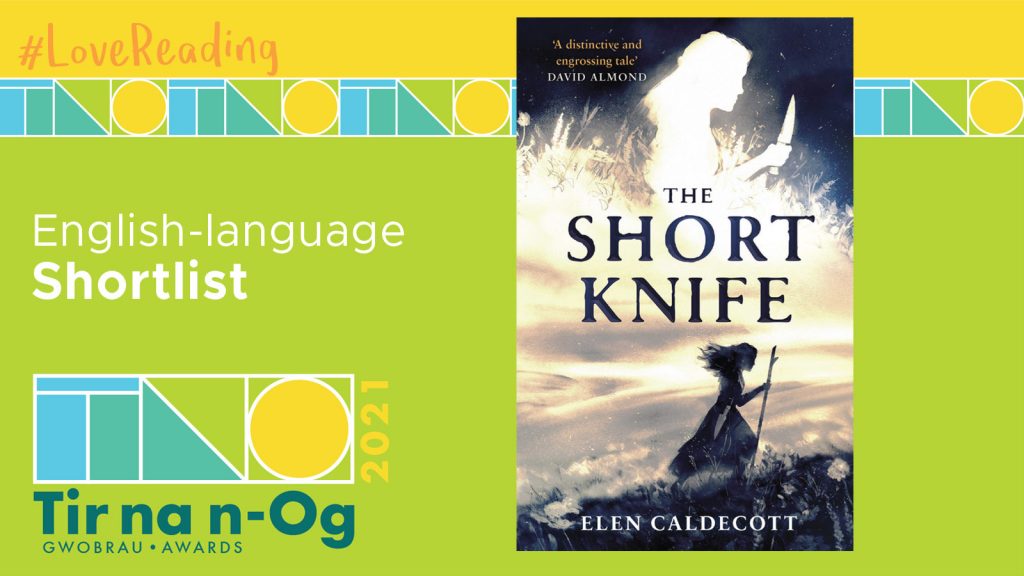
This interview took place between Elen Caldecott and Simon Fisher over a number of months. I am really grateful to Elen for her patience (not least with my questions) and for her generous and thoughtful answers. Diolch Elen.
Do get yourself a copy of The Short Knife from your local bookshop. You can follow Elen on Twitter or visit her website. If you enjoyed this interview, I can strongly recommend the Just Imagine podcast that features Elen talking in more detail about this extraordinary book.
